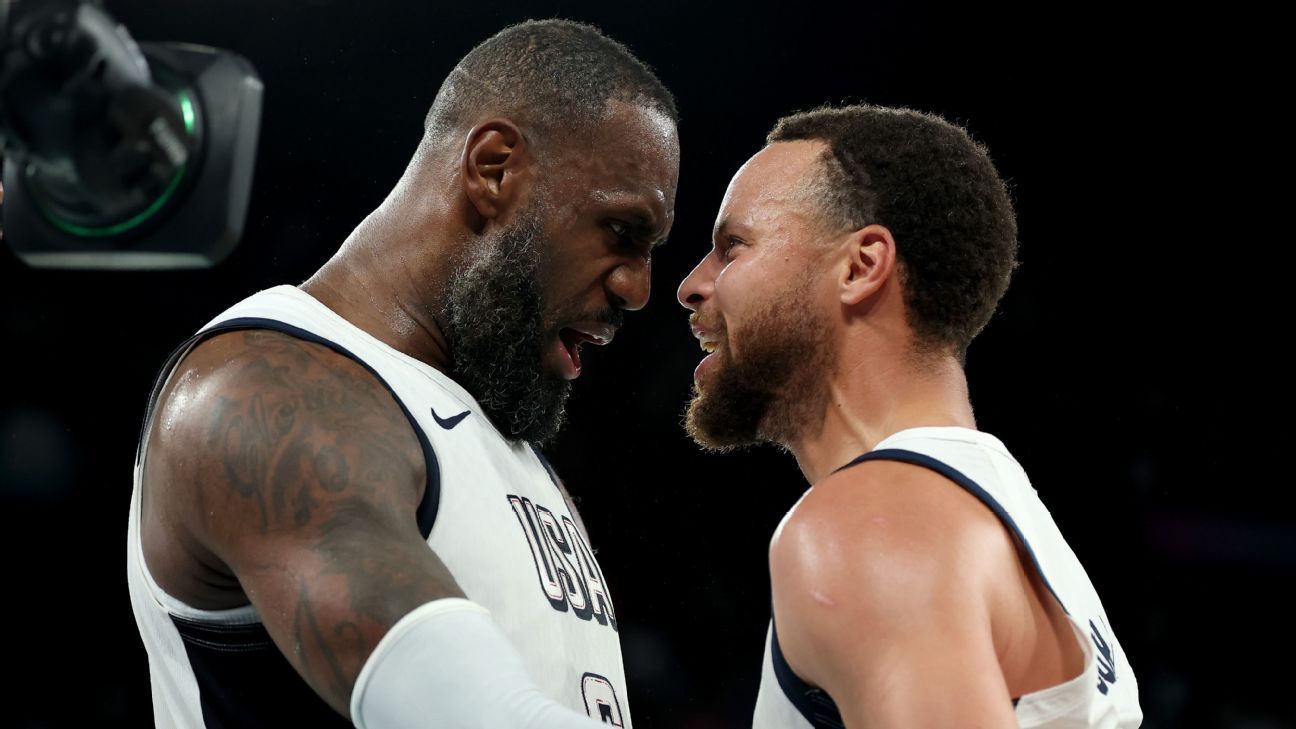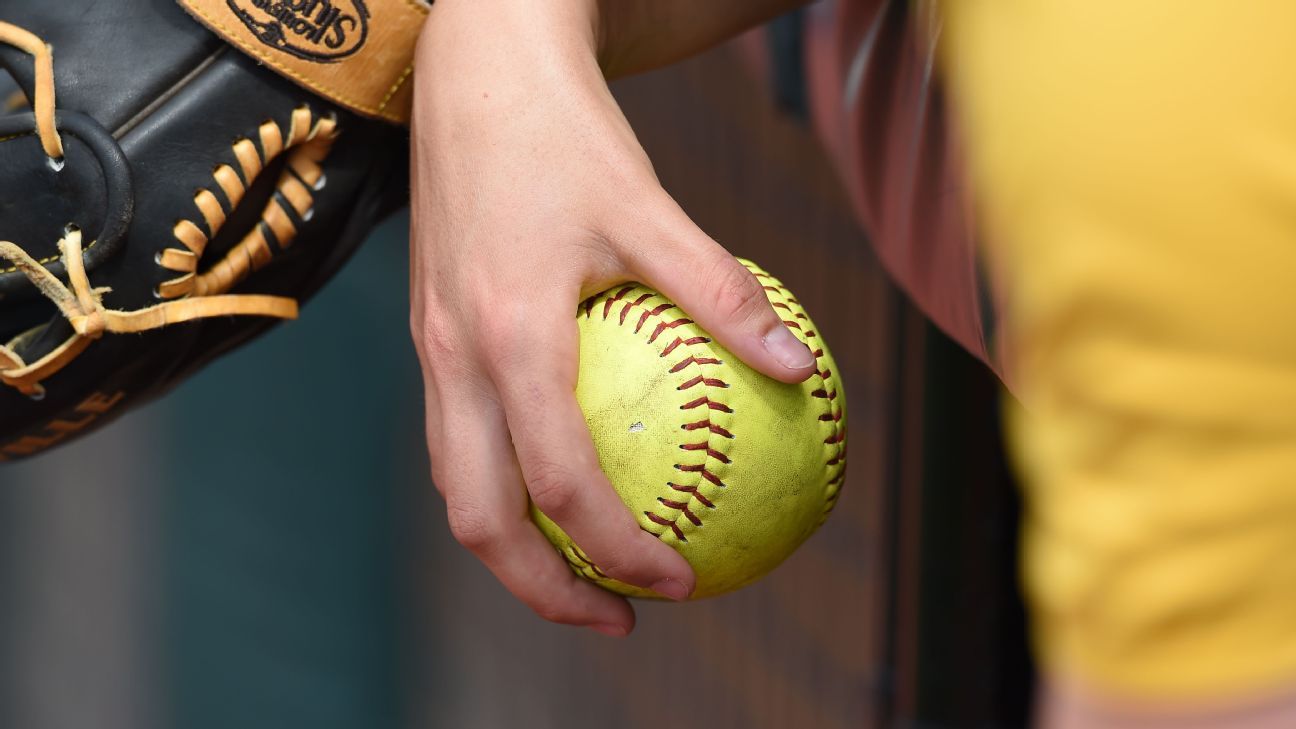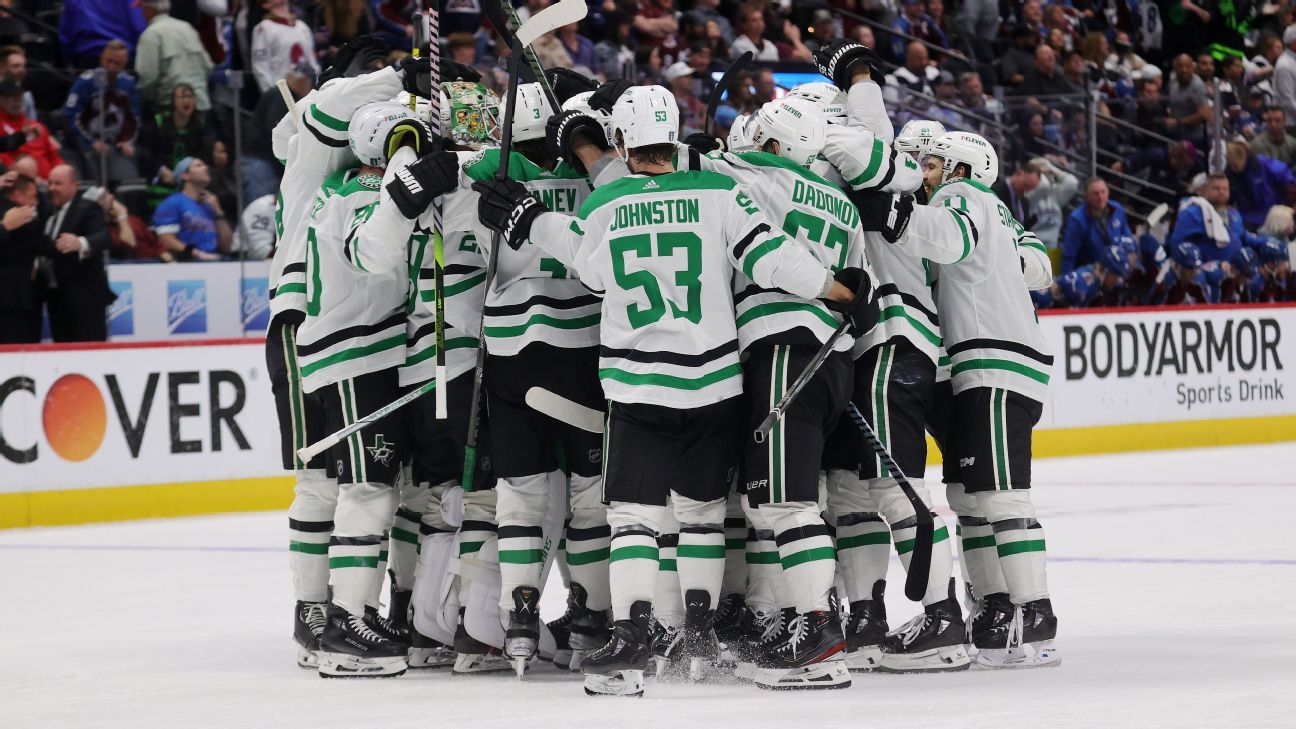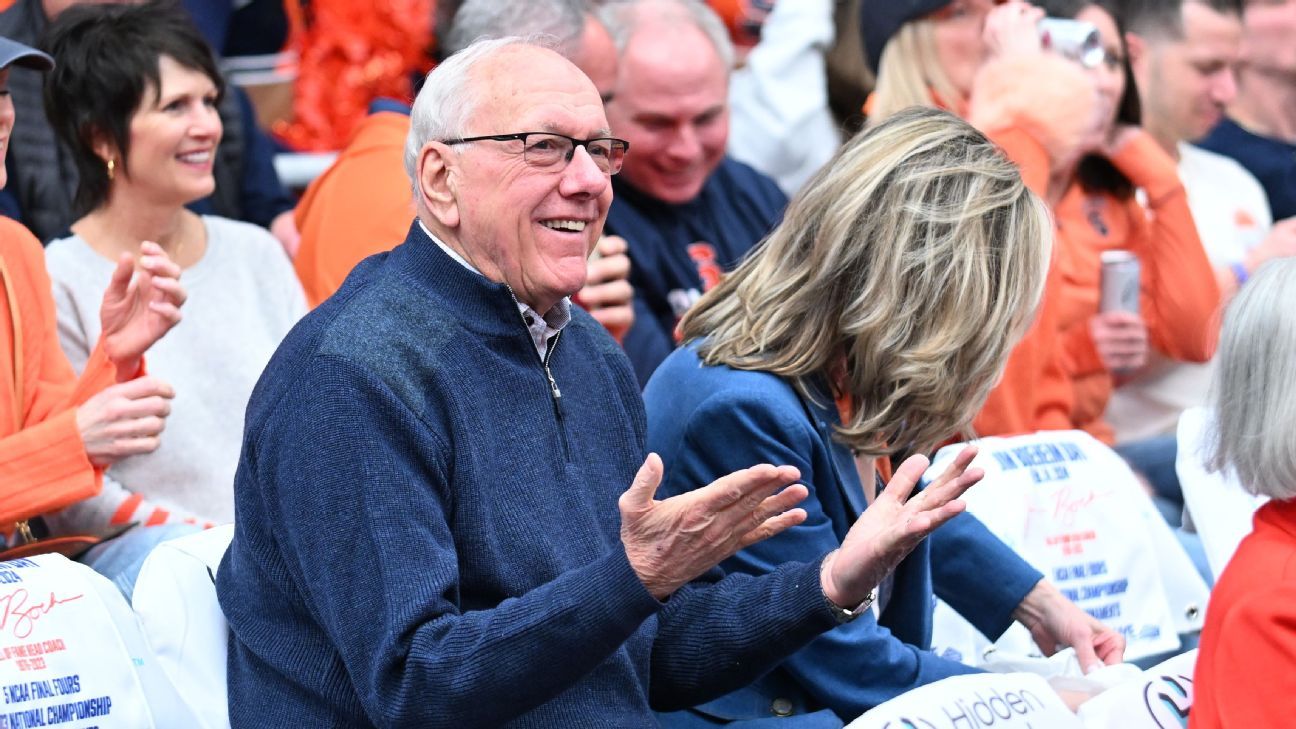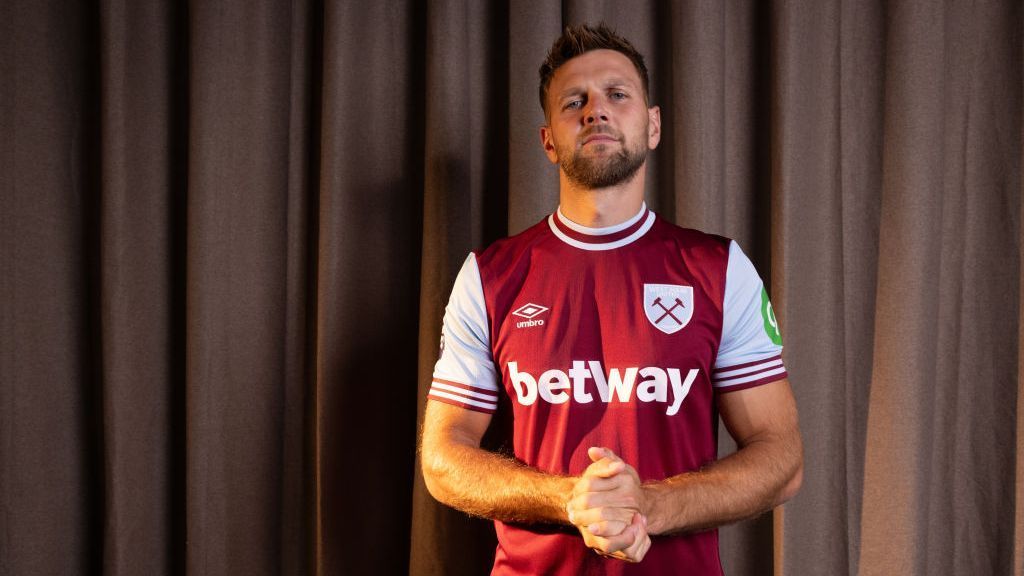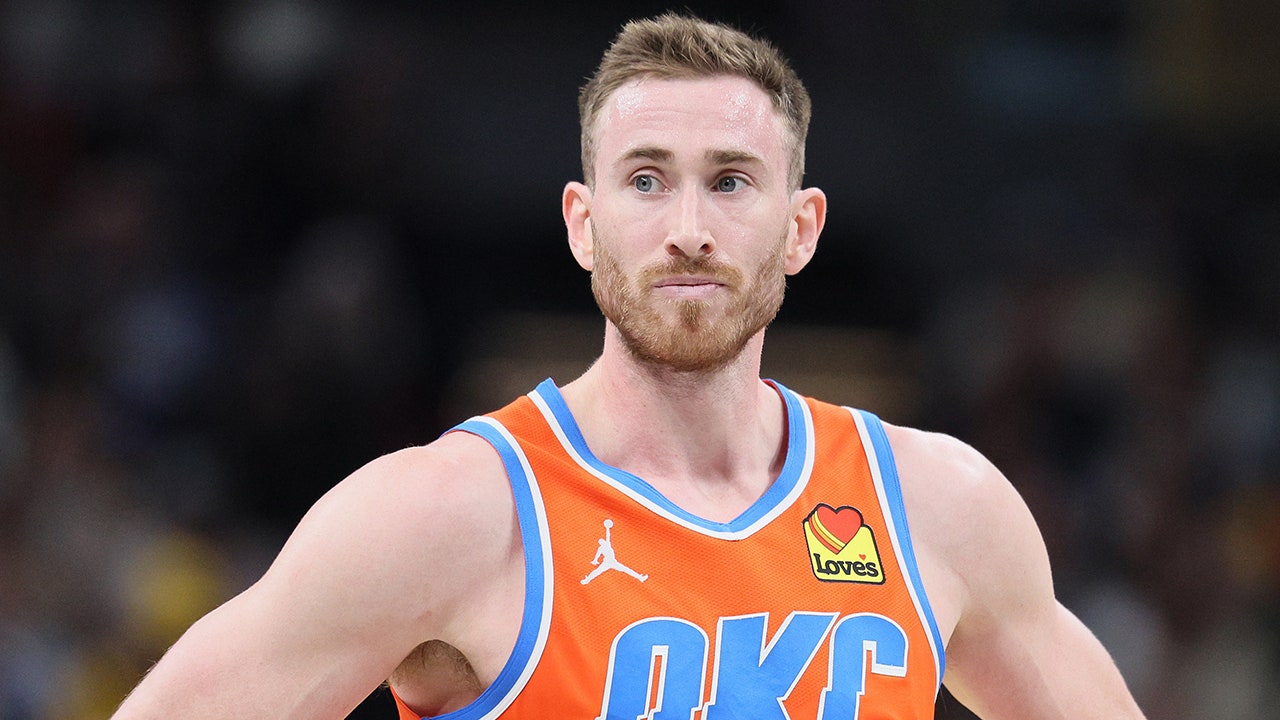After comfortably advancing through its first four games of the 2024 Olympics, the star-studded U.S. men’s basketball team received a scare against Serbia and three-time NBA MVP Nikola Jokic in Thursday’s semifinal game, falling behind by as many as 17 points and heading into the fourth quarter down by 13.
Serbia led for more than 35 of the 40-minute game, but the U.S. held on to the advantage when it mattered. The final period belonged to the U.S., which outscored Serbia 32-15 before rallying to take the lead for good on Stephen Curry's three-pointer with 2:24 left in a 95-91 victory.
Curry turned in his best performance for the United States, scoring 36 points, one shy of the U.S. Olympic men's basketball record held by Carmelo Anthony and the most by an American player in a single-elimination game, according to ESPN Stats & Information. The U.S. needed nearly every point, along with a clutch performance from LeBron James, to advance and face host France for the gold medal on Saturday.
Here are the key takeaways from the most exciting U.S. men's basketball game since the 2008 and 2012 finals against Spain.
It's not the same Serbia
This was the third meeting between Team USA and Serbia this summer. The Americans had comfortably taken the previous two meetings, winning an exhibition game in Abu Dhabi 105-79 and the opening game of the group stage 110-84.
In both games, Serbia struggled from the three-point line, shooting a combined 19-of-71 (27%). Not this time. Led by 4-of-6 three-point shooting from guard Aleksa Avramovic and three apiece from Bogdan Bogdanovic and Ognjen Dobric, Serbia hit five 3-pointers in each of the first three quarters while building a double-digit lead.
In addition to improving its shooting, Serbia relied more on Jokic. Serbia tied the United States with the Denver Nuggets star on the court in the group game, but was outscored by 26 points in the 7:15 he spent on the bench. This time, Jokic played nearly 38 minutes of the 40-minute game, and Serbia managed to extend its lead during his brief breaks. He finished with 17 points and a game-high 11 assists.
The combination made Serbia look like the biggest test yet for the U.S. team, which was expected to compete at the Olympics.
Team USA meets with veterans
Having spent most of the Olympics playing with a deep rotation, U.S. coach Steve Kerr leaned heavily on his veterans when the game was on the line. Kerr’s only change in the fourth quarter until the final eight seconds of the game was the entry of Joel Embiid for Anthony Davis. That gave Team USA a closing lineup with four MVPs — Curry, Embiid, Kevin Durant and LeBron James — flanked by Devin Booker, the only player in that group younger than 30.
The veteran lineup stepped up on defense. Serbia didn't hit a 3-pointer in the fourth quarter, went 0-for-9, and scored just 15 total points after scoring at least 22 in each of the first three periods. Getting more stops allowed the U.S. to get out in transition, including a steal and a layup by Curry that gave the Americans their largest lead of five points.
At the other end, the Stars were able to score against a well-established Serbian defense. Curry's go-ahead three-pointer, which came after a crushing block by Embiid, was the most memorable score. But Durant also made a difficult basket after Serbia cut the lead to two on a three-point play by Bogdanovic with 56 seconds left.
Meanwhile, James was everywhere down the stretch. Playing the entire fourth quarter, he had 6 points, 6 rebounds and 4 assists and finished with his second career Olympic triple-double: 16 points, 12 rebounds and 10 assists. According to ESPN Stats & Info, he is the first male basketball player with multiple triple-doubles at the Olympics, having previously accomplished this in 2012.
Steph plays better
Team USA was only kept close to goal for the first three quarters by Curry's heroics. After a slow start in his Olympic debut, scoring 29 points on 10-of-28 shooting in the U.S.'s first four games, he far exceeded that number in the semifinals.
Curry was sensational early, scoring 14 of the U.S.’s first 15 points, including four 3-pointers in that span. His nine 3-pointers in the game were the second-most by an American men’s basketball player in the Olympics (Anthony made 10 against Nigeria in 2012).
In the final minutes, Curry took control again, scoring seven of Team USA's final 11 points, including two free throws with eight seconds remaining to put the game away.
Surprising problems on the bench
Throughout the Olympics, including the group game against Serbia, the U.S. second unit of Durant, Davis, Bam Adebayo, Anthony Edwards and Derrick White had built up advantages. Durant entered Thursday's game with the best plus-minus on the U.S. team (plus-72), followed by Edwards (plus-65).
Not so in the semifinals. Durant (plus-5) was the only American player with a positive plus-minus, and the Americans were outscored by 16 in the 6:46 that White played. Durant started slowly, scoring just two points on 1-of-5 shooting in the first three quarters before going 3-of-3 in the fourth, and the other four U.S. reserves combined for just nine points.
Changes are possible for Kerr and the U.S. coaching staff for Saturday's gold medal game. Much like when the U.S. faced Serbia in the group stage, Boston Celtics star Jayson Tatum was not part of the rotation in the semifinals, having received a DNP-CD. Indiana Pacers guard Tyrese Haliburton was the other U.S. player who did not see action Thursday.

